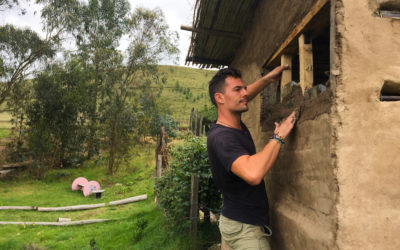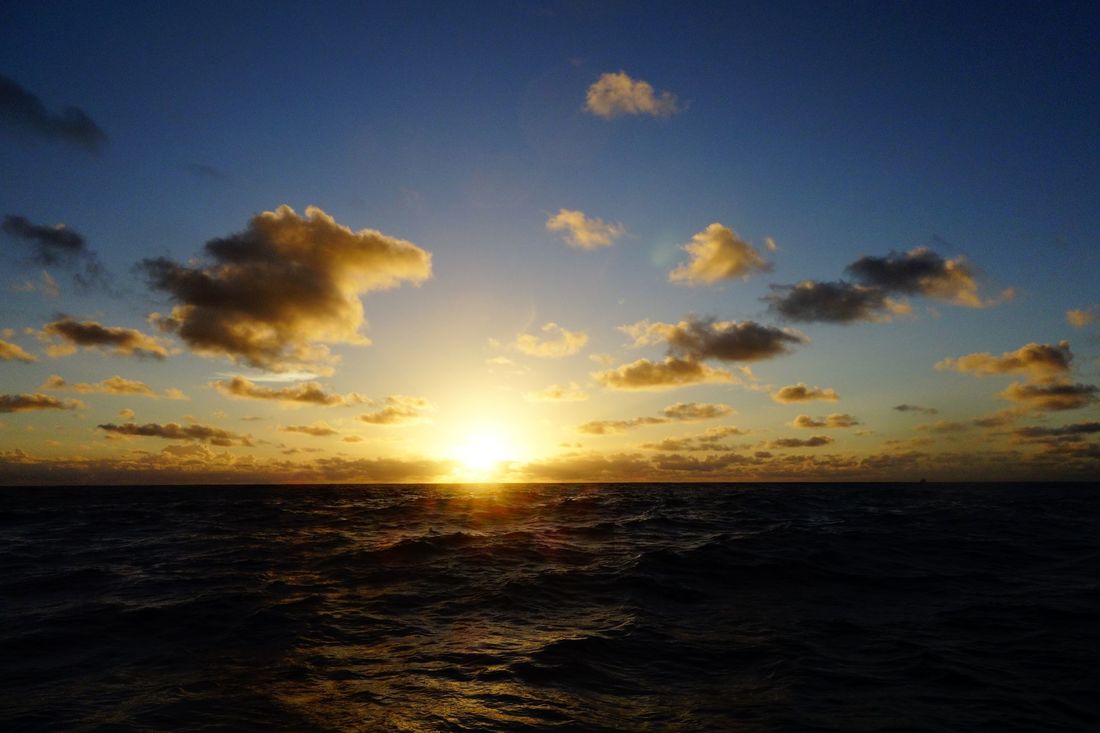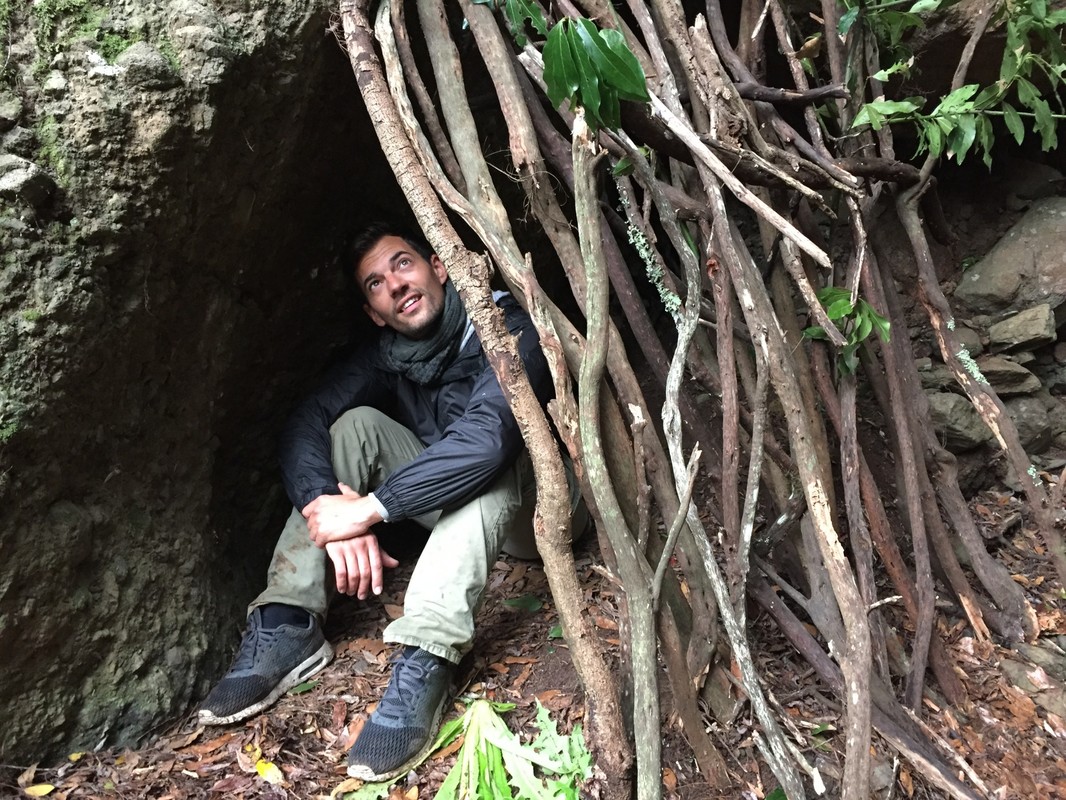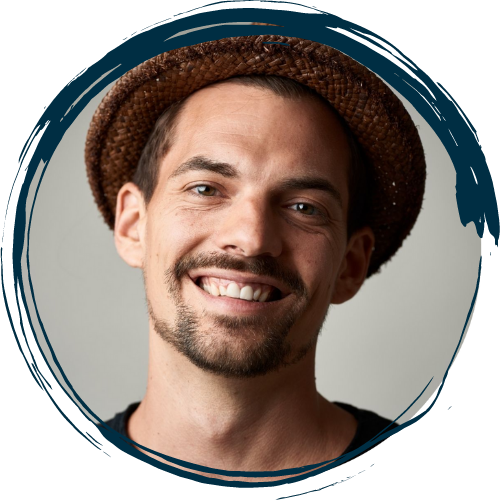Vision
„My vision for Galápagos is a society, in which humans live in harmony with nature and promote a pristine environment. Treating nature in a sustainable way requires a well balanced use of the limited resources we have here. I want to contribute to a win-win-situation for both humans and animals.“
On first steps
„I believe in education and the power of academia. Whenever I want to start something new, my first step is always to read upon it. I learn as much as I can about the field I want to get deeper into – also to avoid working hard on a problem that has been solved by somebody else long ago. By doing so, the right ideas that bring me further pop up automatically.“
About
marine biologist & wildlife conserver
Getting an interview with a high official of the Darwin Research Center on the Galápagos Islands is not easy. Media requests need to be submitted months in advance, detailed forms must be filled out and even then – due to the high interest of worldwide media – chances of rejection are fairly realistic. Well, that applies to commercial usage of the coverage. Fortunately, I didn’t fall into this category. All I needed was a supportive press lady and some interest of the science coordinator himself. I was lucky enough to attract both. Read here about the well protected and yet so fragile environment on the Galápagos Islands and why the rest of the world would do good in adopting this mentality.
„You can’t protect what you don’t love!“
José Marin learned to love nature early in his life. He always spent as much time outdoor as possible. „That is what got me so attracted to nature. That is what made me want to conserve these amazing places. Many people don’t get to explore the outdoors anymore“, he adds. „They never got to appreciate the beauty of our planet. So how important could it ever be for them to save it?“
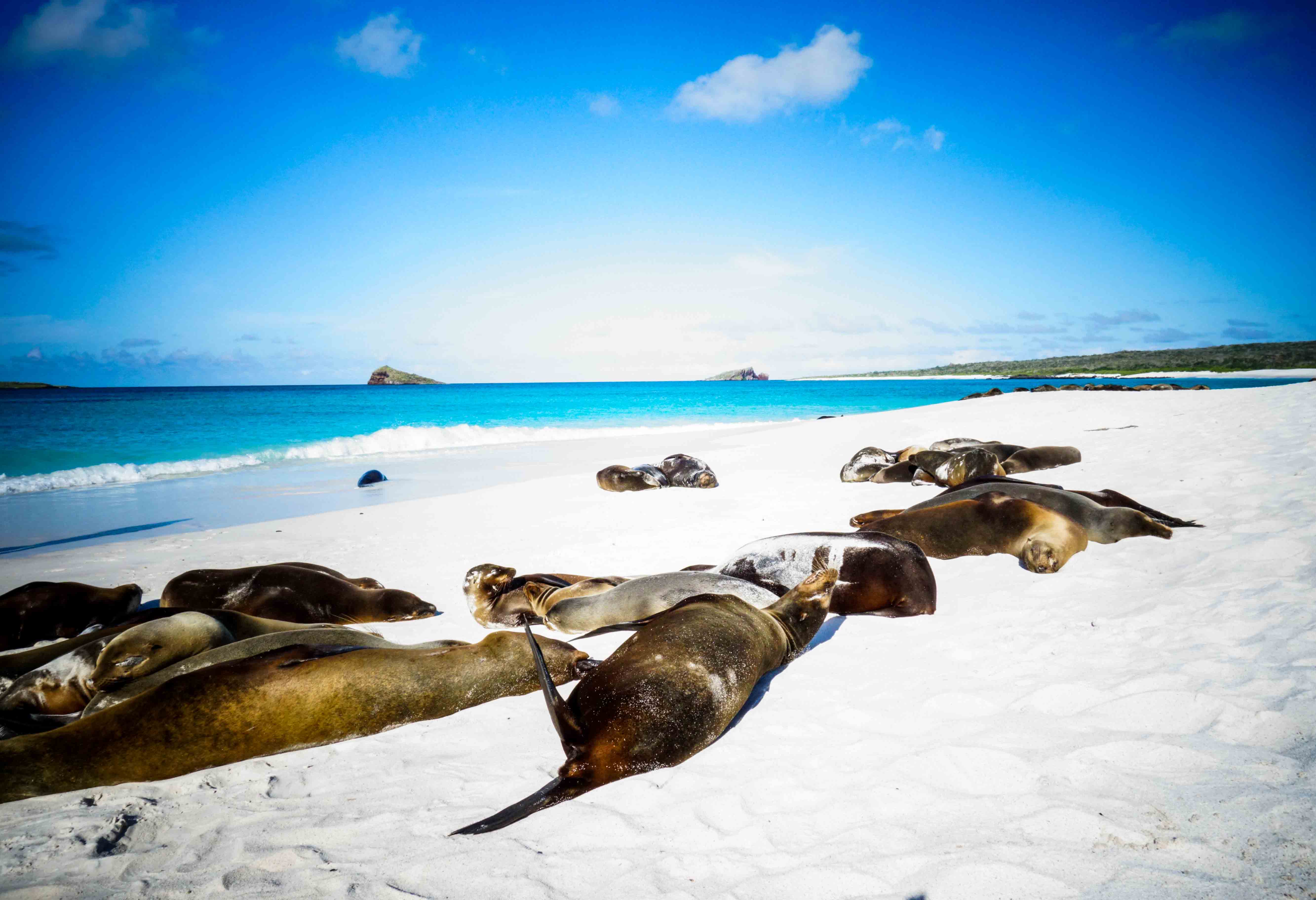
Sea lions on Bahia Gardner beach
Helping to change this by raising awareness is what José calls his main vocation
He studied marine biology and fishery science and chose the path of the scientific coordinator at the Darwin Research Station on the Galápagos Islands. It’s the oldest institution on the archipelago and – operating as a non-profit-organization without governmental support – worldwide acknowledged for it’s unique wildlife research with cutting-edge results. „Our mission here is to gain knowledge for the conservation of the Galápagos Islands. The challenge is to find out how many of the natural resources we can take out without harming the environment. We manage the knowledge and report directly to the government of Ecuador. We tell the fishermen what is sustainable and what is not and make sure that they remain able to fish without negative impacts.“
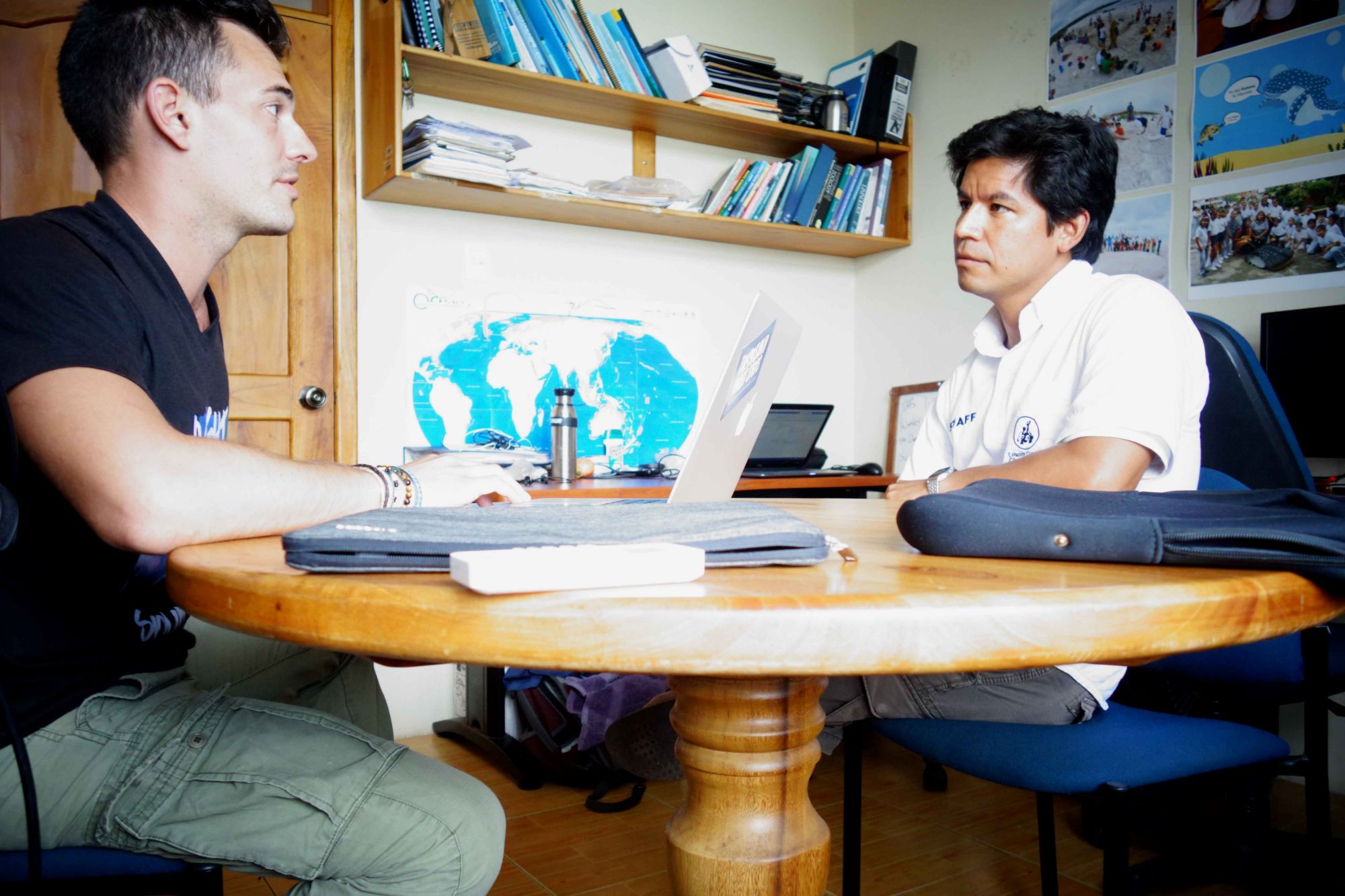
Goats, pigs, cats and dogs – the invaders cause problems!
They all were introduced to the islands, none of them is a native species. „Pigs for example trample on nests of turtles and they consume a lot of the vegetation. We need to limit the introduction of invasive species, we study the threats and try to find out how to get rid of them“, José explains.
The Galápagos Islands is a living laboratory
The archipelago is strongly affected by El Niño events and situated in the tropics with exceptional cold waters. Strong pacific undercurrents deliver highly nutrient waters and allow the life of species that don’t exist anywhere else on the planet. „This is a perfect place to study climate change and what it does to different species in the world“, José directs our conversation to the core.
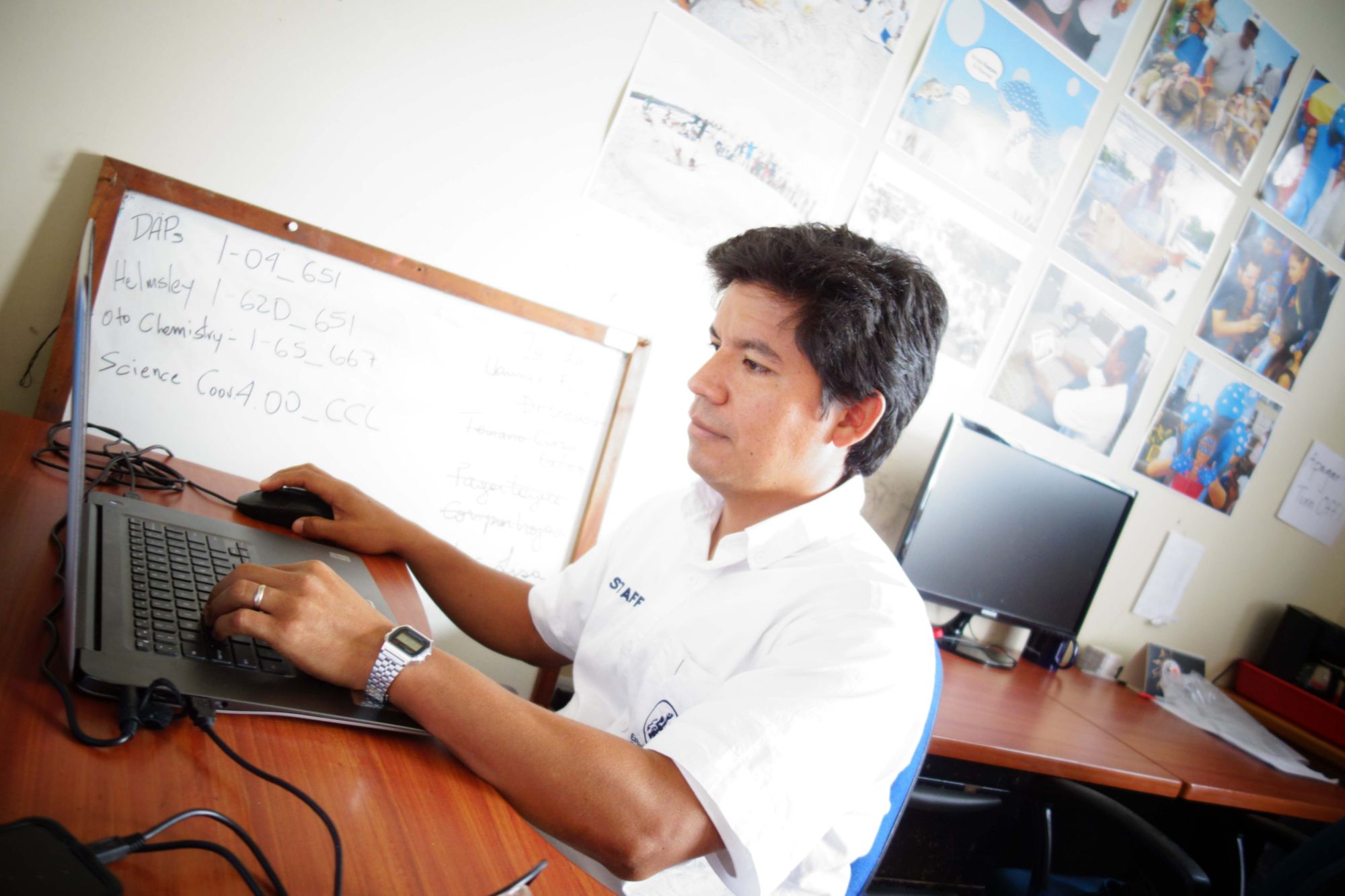
So how serious is the subject of climate change from an insider’s perspective?
„Very serious! Even here, over 1.000 kilometers away from the closest threats, we notice significant impacts. The wet seasons became stronger, the dry seasons drier and the transitions in between brief and unpredictable, dropping from wet to dry almost instantly. The size of the waves has increased dramatically and we are losing more and more coastal areas due to the rise of sea levels.“ Meaning, nesting sites for turtles and habitats for other species are vanishing too. Although far out in the Pacific Ocean, the Galápagos Islands can’t escape the destruction other countries cause in their backyards.
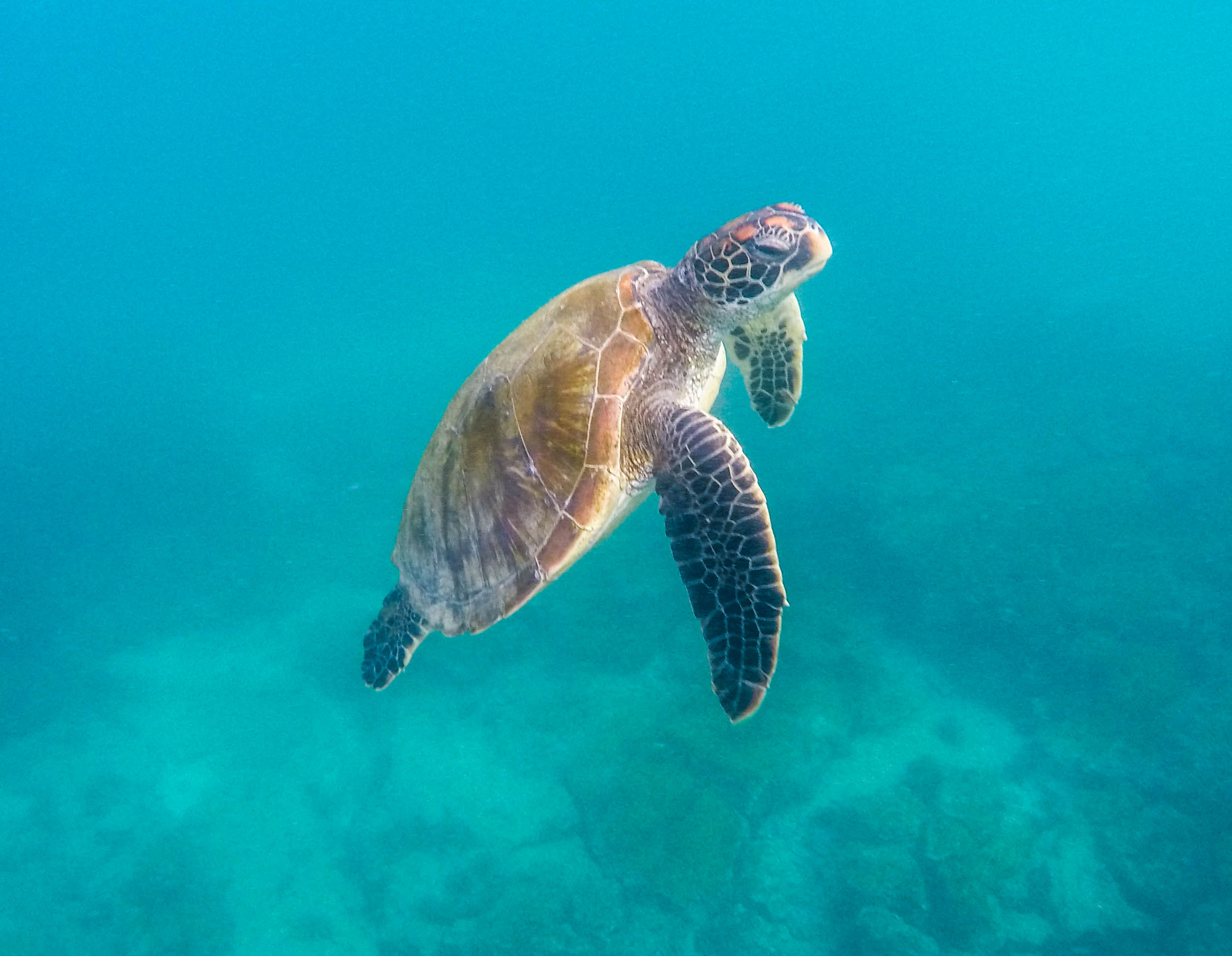
Awareness through eco-tourism
The amount of annual tourists visiting the archipelago has increased significantly over the past decade. Some scientists and even naturalist guides consider this as a threat and hence as a huge problem. Natural resources like water are limited. Risks of introducing invasive species with every arriving plane are high. If there is one thing that the Galápagos Islands can’t stand, it’s mass tourism. But there is a sustainable advantage of eco-tourism, as José brings us closer. „We can’t underestimate the educational aspect. Most tourists don’t come here to see the pretty beach. They want to see the pretty beach and learn about that special iguana that calls it his natural habitat. A person, who is willing to spend thousands of dollars to have that learning experience is a tourist more than worth receiving.“
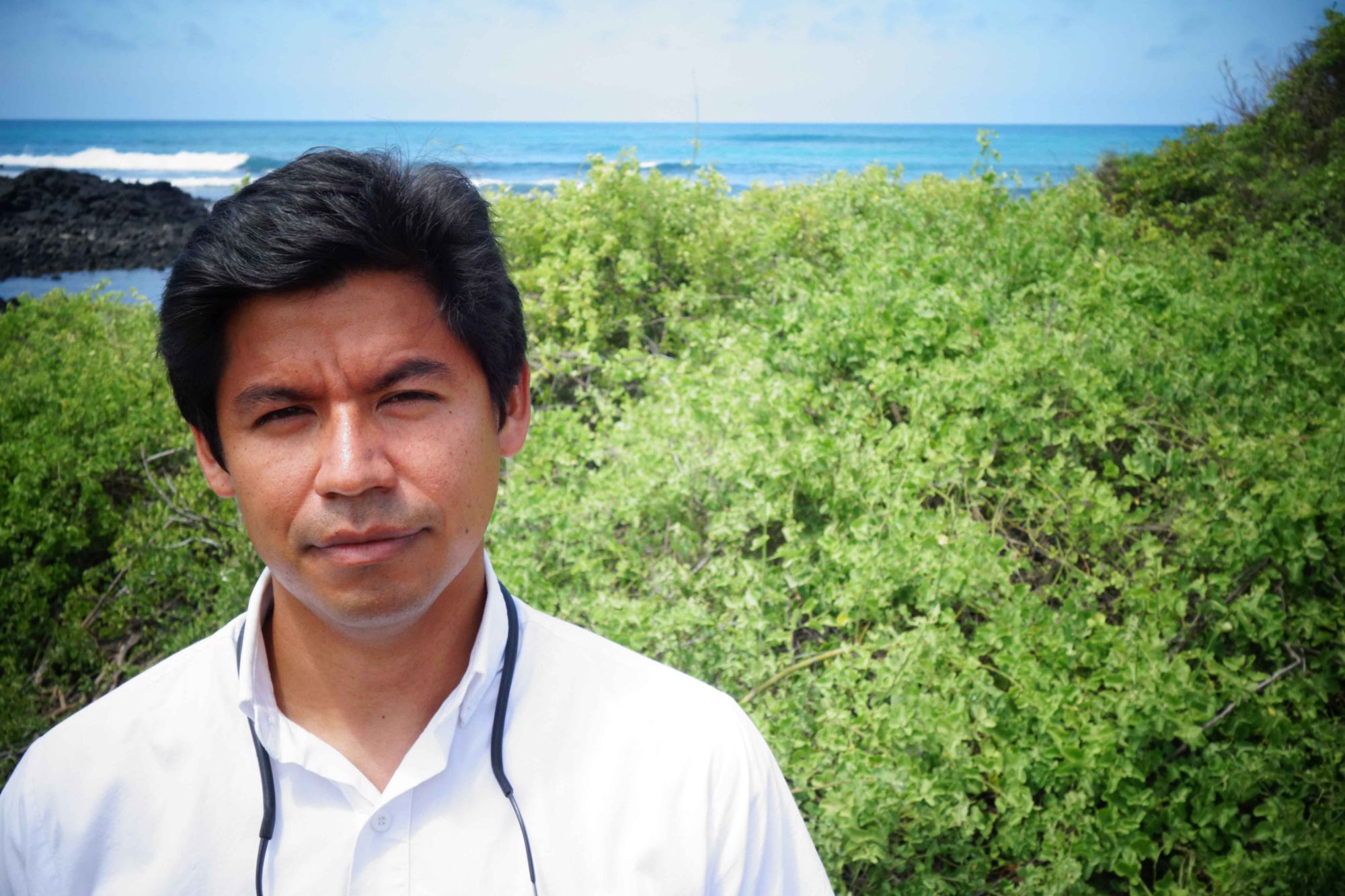
Spreading the vibe
José Marin describes a phenomenon that gives him hope: „People come here and have amazing experiences. They get in touch with nature in the purest and cleanest way possible. They play with penguins and snorkel with sea lions and sharks. This is totally eye opening for many. They start thinking about what they could do in their own countries to promote environmental protection and conserve biological communities. That’s something they never thought about before.“ They come for relaxation on beautiful beaches, they leave with unexpected insights and the will to do something. To make a difference. An impact.
„We export our ideas of how to save the planet to the world. And conscious tourists are our most important deliverer.“
For José Marin, that’s one of the biggest motivations to do what he’s doing. „I am contributing my passions for nature and science to the bigger picture of education about the biggest challenge humanity faces. And I want to help people appreciating our planet.“
For contribution and dedication require understanding and love. One doesn’t necessarily need to travel far out into the Pacific Ocean. Exploring the outdoors at home can be a rewarding start.
